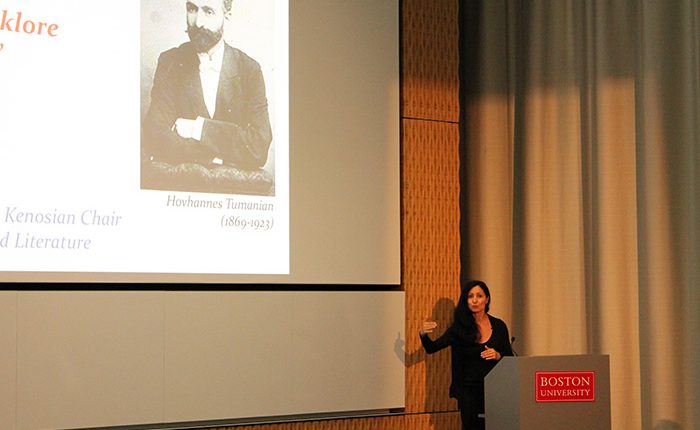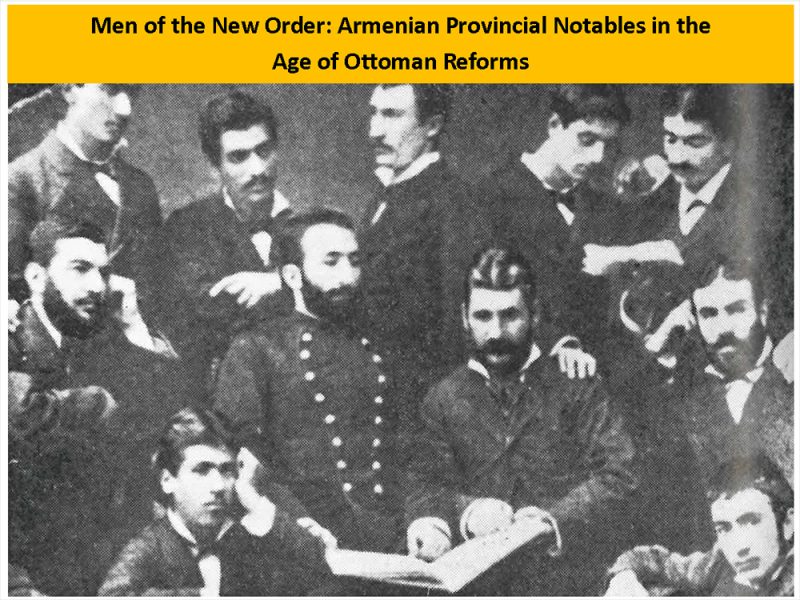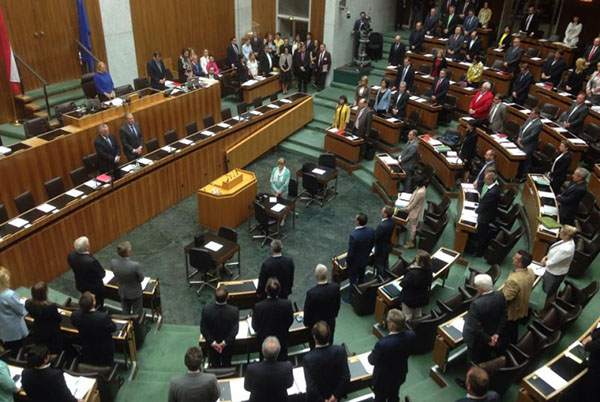By Elizabeth Eckert
Boston University
On Tuesday, September 17, 2019, the Boston University Modern Armenian History and Lecture Series hosted Dr. Beata Navratil for the lecture “Poetry in Music: Armenian Sketches.” The event was organized by Professor Simon Payaslian, Charles K. and Elisabeth M. Kenosian Chair in Modern Armenian History and Literature.
Professor Payaslian welcomed the audience and introduced the speaker, Dr. Beata Navratil. Born in Armenia, Dr. Navratil graduated from the Tchaikovsky Special Music School for Gifted Children. She received her Bachelor of Music and Master of Music degree in Piano Performance from Manhattan School of Music, and her Doctor of Musical Arts in Piano Performance from the Graduate Center at CUNY. She is a recipient of the Gulbenkian Foundation Award, the All-American Scholar Award, and the U.S. Academy Achievement Award. Dr. Navratil has performed in numerous venues throughout the United States and Europe as a soloist, chamber musician, and accompanist.
In her talk, Dr. Navratil presented an overview of the relationship between Armenian culture, history, art, and music. Reading excerpts from the poem Anush, a love story between two peasants Saro and Anush, Dr. Navratil stressed the continued Armenian tradition of connecting poetry to music. Anush opera was written by poet Hovhannes Tumanian (1869–1923) and set to music by composer Armen Tigranian (1879–1950).
Dr. Navaratil shared with the audience the importance of Armenian folk music and dancing, traditions and rituals, as demonstrated in this case in Armenian village life.
Dr. Navratil underscored the historical and cultural significance of emotions in music and poetry, in storytelling and singing, particularly involving the character and role of the protagonists. Nature in Anush, Dr. Navratil maintained, is humanized to emulate feelings and physical attributes of people. The three dominant components of nature—mountains, flowers and bodies of water—create a psychological environment and convey a specific mood and emotion. This humanization of nature serves as a vehicle for narrating or singing the story.
In her concluding comments, Dr. Navratil also noted the difficulties involved in translating such a deeply culture-specific work of literature into English. Although this art form is difficult for non-Armenian people to understand, Dr. Navratil nevertheless successfully conveyed the cultural value of Armenian poetry and music and enabled the audience here at Boston University to gain an understanding










